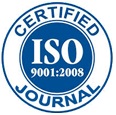Sustainable Aquaculture Practices for Food Security and Livelihoods
Keywords:
Vital Industry, Governance Considerations, Food Security.Abstract
Aquaculture plays a pivotal role in meeting the growing global demand for seafood, contributing significantly to food security and livelihoods. However, the rapid expansion of the aquaculture industry has raised concerns about its environmental and socio-economic impacts. This abstract outlines the key components of sustainable aquaculture practices aimed at addressing these challenges and ensuring the long-term resilience of the sector. The first dimension of sustainability in aquaculture involves environmental stewardship. Sustainable practices focus on minimizing the ecological footprint of aquaculture operations by optimizing resource use, reducing pollution, and protecting biodiversity. Techniques such as integrated multitrophic aquaculture, water recirculation systems, and eco-friendly feed formulations are explored to enhance environmental sustainability. The second dimension revolves around social and economic considerations. Sustainable aquaculture practices aim to improve the well-being of local communities and enhance livelihoods. This involves promoting responsible labor practices, supporting small-scale farmers, and fostering community engagement. By integrating aquaculture into broader rural development strategies, the sector can contribute to poverty alleviation and social equity.Downloads
Published
2023-08-10
How to Cite
Rehan Khan. (2023). Sustainable Aquaculture Practices for Food Security and Livelihoods. International Journal of Agro Studies and Life Sciences, ISSN: 3048-5126, 2(2), 8–14. Retrieved from https://edupublications.com/index.php/ijasls/article/view/57
Issue
Section
Articles
License

This work is licensed under a Creative Commons Attribution-NonCommercial 4.0 International License.







